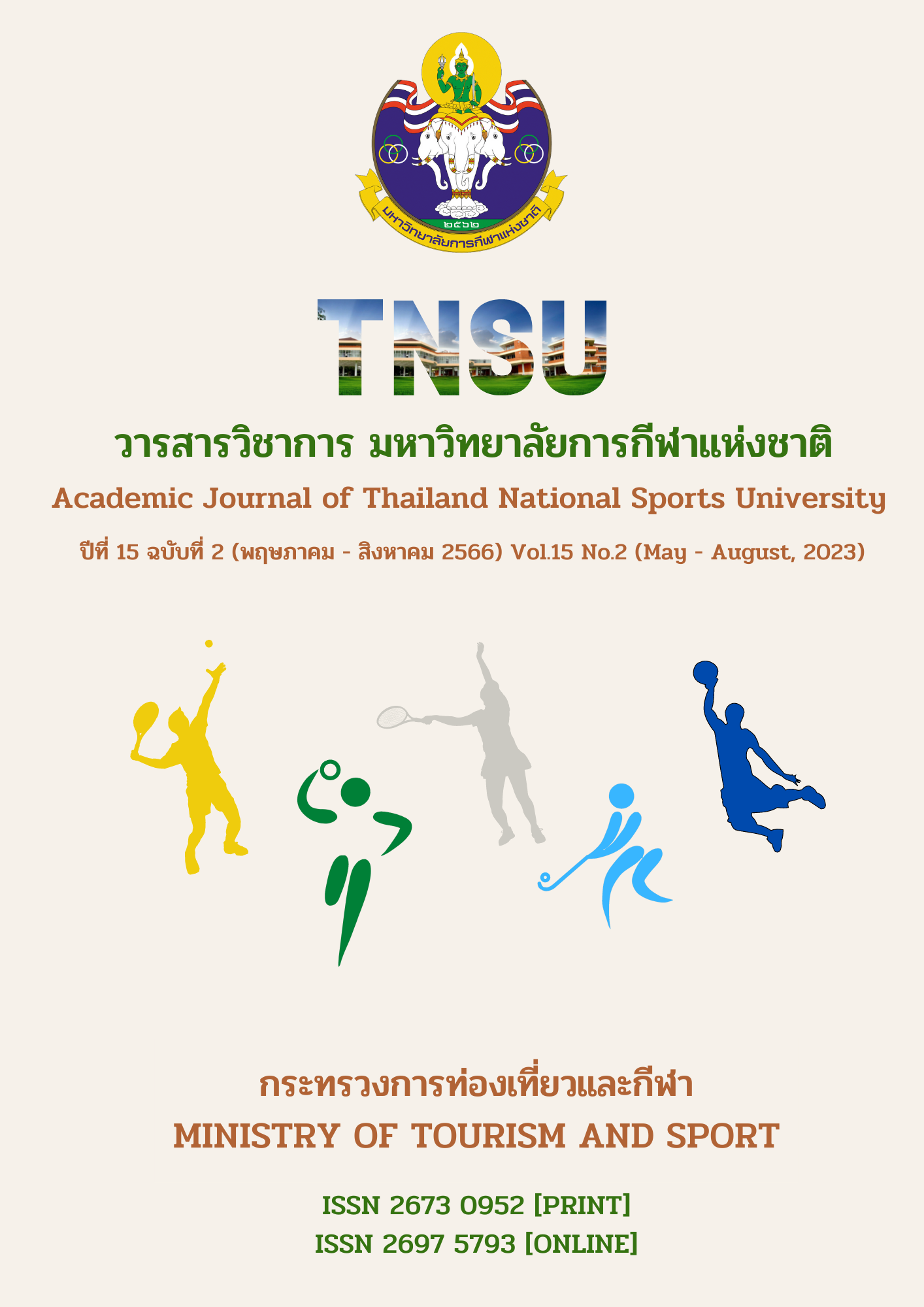DEVELOPING A PROJECT - BASED LEISURE EDUCATION TOWARD OLDER ADULTS’ HAPPINESS
Main Article Content
Abstract
The purpose of this quasi - experimental research was to study the effect of the project - based leisure education on older adults’ happiness. Samples were 60 older adults (60 - 69 years old) at the Senior Citizen Club in Soi Phetkaseang. They were selected by the happiness evaluation questionnaire and match - paired sampling into experimental and control groups, 30 for each. The research instruments were: 1) the happiness evaluation questionnaire was approved by 5 leisure experts - the content validity (IOC) was in the range of .60 – 1.00, meanwhile the Cronbach alpha coefficient correlation reliability was .81, and 2) the project - based leisure education toward older adults’ happiness was approved by 5 leisure experts - the face validity was in the appropriate level. Data were analyzed by mean, standard deviation and t - test.
Findings revealed that: - 1) after attending the leisure education project, the happiness of the experimental group had significant difference before attended at .05 level, and 2) after attending the project, the happiness of the experimental group and the control group had significant differences at the statistical of .05 level. It can be concluded that the project - based leisure education toward older adults’ happiness possessed the appropriateness for further application.
Article Details

This work is licensed under a Creative Commons Attribution-NonCommercial-NoDerivatives 4.0 International License.
The published article is a copyright of the Academic Journal of Thailand National Sports University. The passage appeared in each article in this academic journal is a perspective of each author which is not related to the journal. Each author is required to be responsible for all components of his/her own article. If there are any mistakes, each author must be responsible for those mistakes on his/her own.
References
Best, J. W. (1970). Research in Education. NJ: Prentice - Hall.
Dattio, J. (2015). Leisure Education Program Planning. IL: Sagamore Publishing.
Dieser, R. B. (2013). Leisure Education: A Person - Centered, System - Directed and Social Policy Perspective. IL: Sagamore Publishing LLC.
Institute of Research and Development Thai Older Adults Foundation. (2019). Thai Older Adults Situation in 2018. Bangkok: Institute of Population and Society, Mahidol University.
Jerapong Jaisabai. (2000). Self - Care behavior and quality of life of older adults in Bangkoknoy senior citizen club (Masters’ Thesis), Srinakharinwirot University.
Jittiya Sombatboon, Nuchanat Prakat, & Busarin Euysiyog. (2019). Happiness of Thai older adults in Thailand 4.0. Journal of Phrapoklao Nursing College, 30(2), 219 - 228.
Krejcie, R. V. & Morgan, D. W. (1970). Determining sample size for research activities. Educational and Psychological Measurement, 30(3), 607 - 610
McHugha, S., Snapeb, B., Haworthb, J., & Carsona, J. (2016). Everyday leisure and happiness in work town: A Comparison of 1938 and 2014. World Leisure Journal, 58.
Nuttawut Petkong. (2015). The effect of recreation program on quality of life of older adults in senior citizen club at Prajomklet Hospital, Petchburi (Masters’ Thesis), Srinakharinwirot University.
Rossman, J. R., & Schlatter, B. E. (2008). Recreation Programming: Designing Leisure Experiences (5th ed.). IL: Sagamore Publishing.
Sakdipat Chalermputipong. (2001). Leisure education for promoting quality of life. Journal of Faculty of Physical Education, 14(2).
Suvimol Tangsujjapoj. (2010). Leisure and Recreation. Bangkok: Addison Place Product Limited Company.
The Department of Aging Activity. (2019). The statistics of older adults. Retrieved from http://www.dop.go.th/th/know/1/238


